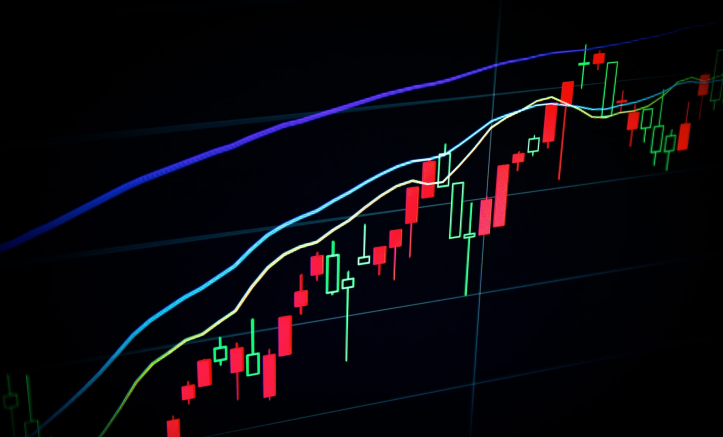
Learn About Open-ended Fund
An open-ended fund (OEF) is a pool of money belonging to many investors and managed by investment professionals at a fund manager. The fund is called “open-ended” because it does not have a definite term, and investors may join and leave the fund any time.

Learn About Exchange-Traded Funds (ETFs)
An exchange-traded fund, also known as an ETF, is an investment fund designed to track an index. Most ETFs are passive, and track market cap weighted indexes.


Invest with VinaSIP
VinaSIP (Systematic Investment Program) is an effective method of implementing a financial plan by investing a fixed, regular monthly amount in an open-ended fund professionally managed by VinaCapital.
VinaCapital Fund Management Joint Stock Company is an independent legal company, licensed by the State Securities Commission to manage securities investment funds for domestic and international investors.
- The fund management company operates in the securities markets and is closely supervised by the State Securities Commission.
- The Operation and Business of the VinaCapital Fund Management
- Establishment and management of securities investment funds
- Securities portfolio management services
- Securities investment advisory
No. Open-ended fund returns are not guaranteed. At VinaCapital, we aim to achieve better returns than the market (equity or fixed income).
No. Open-ended funds do not make periodic profit distributions. An individual can sell (redeem) his/her own fund certificates and take the value when they choose to do so; and will record a profit or loss depending on fund performance.
- No. Investors will not participate in the daily investment decisions of the funds. The funds are managed by professional portfolio managers, with access to detailed information and supported by a large, experienced research team.
- The investment activities of the open-ended fund must comply with the investment strategy, the investment limits as presented in the fund charter/ prospectus, and in accordance with the law.
Yes. VinaCapital publishes reports on the open-end funds’ performance at the beginning of each month, which include the entire portfolio of the funds.
Open-end funds are medium and long-term investment products. Investors should put money in open-end funds for a minimum of one year, although ideally for a longer time period to increase the opportunities for earning positive returns.
- Investors can track their open-ended fund investments via an online account on VinaCapital MiO (App & Website)
- A VinaCapital MiO online account enables investors to:
- Make subscription, redemption, and switch orders, and cancel transactions
- Check transaction history, fund performance, and account value
- Update personal information
- VinaCapital sends a monthly report to customers on the 10th business day of each month
- Investment account statement
- Fund monthly report (factsheet)
- Investors can also check with the bank where they opened their investment account or call VinaCapital at 1900636553
No. Fund certificates cannot be used as collateral for a bank loan.
The value of the fund certificate is based on the market price of the securities held by the fund at the time of sale. The fund certificate’s value is equal to the total assets of the fund divided by the total number of certificates of the fund, which is publicly disclosed on VinaCapital’s website and VinaCapital MiO application.
Investors will receive their money at T+5 day till transaction day (except for Saturday, Sunday, and holidays). T is a transaction day.
- The supervisory bank ensures that the fund management company manages the open-ended funds based on the rules outlined in the prospectus and in the interests of the investor.
- The supervisory bank is responsible for the valuation of the net assets of the open-ended fund and tracking all the open-ended fund’s transactions, income, and dividends.
It is very difficult to “time the market”. Long term investors should invest when they have money and ideally, make systematic investments to take advantage of market movements.
Total net asset value (NAV) = Assets – Costs
NAV/fund certificates = Total net assets value/Quantity of the fund certificates
Yes. Investors may make non-commercial ownership transfers of fund certificates for the following purposes:
- Transfer of the fund certificates ownership due to giving, donating, gifting
- Transfer of the fund certificates ownership due to inheritance
- Transfer of the fund certificates ownership due to a court decision
No. According to current regulations, investors are only allowed to make a subscription/ redemption order with the fund management company and are not allowed to make a subscription/redemption with each other.
- Open-ended funds operate under Circular No. 98/2020/TT-BTC on “securities guiding the operation and management of securities investment funds” issued by the Ministry of Finance on November 16, 2020. The law gives specific and strict guidance on the establishment and operation of open-ended funds to protect the interests of investors.
- Organizations related to open-ended fund activities include fund management companies, supervisory banks, auditing companies, and other organizations which must comply with regulations and be under the supervision of the SSC.
- Every day: The Net Asset Value (NAV) report is publicly available on:
- Customer’s VinaCapital MiO online account
- Website: https://vinacapital.com/
- Information disclosure portal of the SSC: https://congbothongtin.ssc.gov.vn/
- Website/App of open fund distribution/referral partners managed by VinaCapital
- Every month: Fund performance report, published on the website: https://vinacapital.com/
- Every quarter: Fund performance report, published on the website: https://vinacapital.com/
- Every year: General fund annual performance report, published on the website: https://vinacapital.com/
| Fee | VINACAPITAL-VFF | VINACAPITAL-VIBF | VINACAPITAL-VEOF | VINACAPITAL-VESAF |
| Subscription fee | 0% | 0% | 0% | 0% |
| Redemption fee <1 year | 2% | 2% | 2% | 2% |
| 1 =< redemption fee <2 years | 0.5% | 1.5% | 1.5% | 1.5% |
| Redemption fee ≥ 2 years | 0% | 0.5% | 0.5% | 0.5% |
| PIT as required by law (when redeeming/ switching fund certificates) | 0.1% | 0.1% | 0.1% | 0.1% |
- Yes, Institutional investors can invest in open-ended funds.
- Necessary account opening documents for institutional investors:
Legal documents:
- Certificate of business registration (a notarized copy)
- Tax registration (a notarized copy)
- Decision of the Board of Directors to appoint legal representatives (a notarized copy)
- Identify card of representative of the law (a notarized copy)
- Sample signature registration sheet of the legal representative.
- Trading account opening form (provided by VinaCapital)
- Yes, Foreign investors need to conduct a three-step process to complete the procedure to open an open-ended fund account, including : obtain a securities transaction code, open a foreign indirect investment capital account (IICA), and open a fund certificate trading account at VinaCapital.
- VinaCapital and/or our distribution partners will support foreign investors interested in opening accounts.
Fund certificates can be inherited in accordance with the law.
- No, PIT from investment in an open-ended fund is 0.1% of transaction value. This tax is deducted at the time of redemption, so investors do not need to declare personal income tax from the open-ended fund investments.
- The money gained from the redemption of fund certificates is transferred to an investor’s account, which means that all tax obligations and fees have been fulfilled.
Yes. The investor can sell as many or as few fund certificates as they choose.
Yes, investing in open-ended funds is legal and authorized by government regulations.
- The establishment and operation of open-ended funds are clearly regulated by the Ministry of Finance according to the Circular guiding the operation and management of the securities investment funds (No. 98/2020/TT-BTC).
- Open-ended funds have several levels of independent supervision to protect the interests of investors, including: the State Securities Commission, a supervisory bank, the annual general meeting of investors, the board of representatives, and the auditing firm.
- When transferring capital contributions to a fund, investors do not transfer money to the fund management company’s account, but to the fund’s account which is maintained at a custodian bank.
- According to the regulations, fund management companies must publish information such as financial statements, net asset value, and the prices of fund certificates of the open-ended funds on their websites.
- Finally, open-ended funds can be viewed as a safer form of investment than other types of investment funds because they only invest in financial instruments with good liquidity in the Vietnamese market.
- Investing in open-ended funds also carries certain risks. The level of risk depends on the type of assets that afund invests in. A relationship manager will help investors choose an open-ended fund that suits their risk appetite. At the same time, investors will receive detailed advice to create an optimal investment portfolio to help them achieve their investment goals and minimize risk.
There are four common factors that investors should consider when choosing an open-ended fund: People, Philosophy, Process, and Performance (the “4P formula”).
- The first P is “People”, or human resources. Who is on the professional investment management team and what is their experience? Is the team stable?
- The second P is “Philosophy.” What is the fund’s philosophy? Is the philosophy clear and suitable for investors? Is the fund conservative, growth-oriented, balanced?
- The third P is “Process,” or investment strategy: What is the fund’s investment strategy? How are securities analyzed and invested?
- And the fourth P is “Performance,” or the results of the investment: How has the fund performed over time?
Investors should invest in open-ended funds as soon as they have available cash
- Take advantage of the compounding:
Investing early helps investors take advantage of the power of the compounding, in which investment gains are reinvested to create additional returns. The earlier you invest, the longer the investment period, and the more money you accumulate due to compounding. - Bring a better quality of life:
Investing early helps bring a better quality of life for investors and their families. If investors achieve financial prosperity early, their lives will be more comfortable. Even when they are not working, their investments will still generate passive income.
